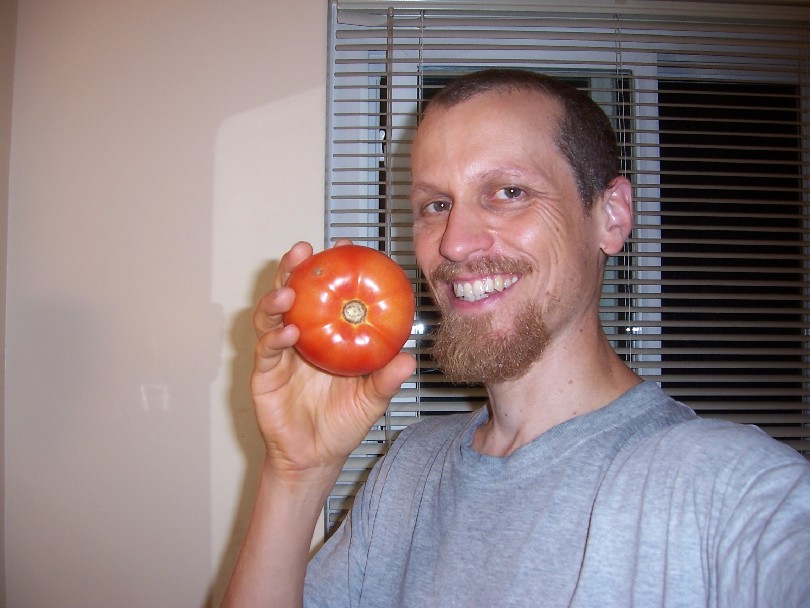She said in addition to marching in Pride Parades, MFA seeks to create positive social change by raising awareness about the plights of farmed animals and talking to consumers about the power of their food choices. "In 2011, MFA conducted more than 1,500 public outreach events including vegan feed-ins, tabling events, leafletings and Paid-Per-View screenings. At Paid-Per-View screenings we pay people a dollar to watch a 4-minute clip from Farm to Fridge, an eye-opening exploration behind the closed doors of the nation's largest industrial poultry, pig, dairy and fish farms, hatcheries, and slaughter plants. Exposing consumers to the realities of modern animal agriculture is a powerful way to inspire change.
She added, "After learning about the cruelty involved in factory-farmed products, many people think 'free-range,' 'cage-free' or 'organic' meat, eggs and dairy products are the solution. While these products may be less cruel than the typical factory farm products, they still involve needless violence, suffering and death and should not be mistaken for cruelty-free,"
She said any time an animal, even a free-range animal, is used as a commodity to be consumed -- or treated as a piece of property -- corners are cut and the animals lose.
This may indicate the challenge of forming alliances between animal liberationists and advocates of so-called humane animal husbandry. This also calls to mind how animal liberation gets relatively little attention in both mainstream and non-mainstream progressive media outlets, not to mention non-progressive media outlets. At the time of posting this content, I'm waiting on a reply from Mercy for Animals regarding the points in this paragraph.
Von Alt continued, "At Mercy For Animals, we encourage people to remember that the only meaningful difference between a dog or a cat and a cow, pig or chicken is the way that we treat them. If you wouldn't eat your free-range dog or cat, why would you eat any other animal who has the same passion for life?"
Von Alt said if a person feels they are not quite willing or able to stop eating animals yet, it is more productive to begin by reducing the amount of meat, diary and eggs one consumes instead of falling for clever marketing schemes designed to make people feel better about paying more for some of the same types of cruelties.
I'm currently looking for more details about such clever marketing schemes. I asked Von Alt about the possible role of civil disobedience in the animal liberation movement.
"Once people become aware of the scale of violence and suffering being routinely inflicted on animals in name of commerce and greed, some understandably turn to civil disobedience to express their outrage and to garner attention on the issue -- particularly when the mainstream media seems unwilling to cover these issues otherwise. While we neither condone nor condemn non-violent actions to help animals, MFA continues to work within the law to bring its message of compassion to the masses," Von Alt said.
I asked Von Alt to offer ideas about engaging with government so as to save or improve farm animals' lives. Though removing our financial support from the meat, dairy and egg industries is an easy and powerful way for individual consumers to put their ethics on the table, we shouldn't stop there, said Von Alt.
"Concerned citizens can also push their local, state and federal representatives to ban some of the cruelest factory farming practices. For example, MFA volunteers were instrumental in getting California Proposition 2 passed a couple years ago to outlaw veal crates for baby calves, gestation crates for mother pigs and battery cages for egg-laying hens. These types of intensive confinement systems, which don't even allow the animals to freely move or lie down comfortably for nearly their entire lives, are perhaps the cruelest forms of institutionalized animal abuse in existence. But by raising awareness among the voting public, Prop 2 passed by a landslide and became the most popular ballot initiative in California history," Von Alt said.
She said MFA also worked with concerned citizens in Ohio to collect signatures to outlaw similarly cruel practices here.
"When it became obvious to the industry that the measure may be as popular as the one in California, they decided to come to the table and negotiated a deal with the governor and the animal protection movement to phase out veal crates and gestation crates, place a moratorium on building new battery cage egg facilities and outlawed strangulation as a form of euthanasia," Von Alt said.
These issues are related to Ohio's Livestock Care Standards Board, which was created in early 2010 after the Issue 2 ballot initiative passed in autumn of 2009. Von Alt said while it is important to remember outlawing some cruel practices does not make these industries cruelty-free, it does help to alleviate the suffering of literally hundreds of millions of animals each year.
"It is because of citizens who care enough to lobby their elected representatives, to write letters and make phone calls and collect signatures, that these types of initiatives have been so successful," Von Alt said.
(Note: You can view every article as one long page if you sign up as an Advocate Member, or higher).





